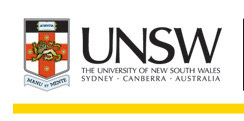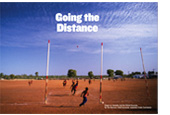Hawke hit Thatcher for six in the economic Ashes
The former Australian PM is a clear winner
By Tim Harcourt
In terms of an economic legacy, did Thatcherism work? Or did Bob Hawke’s strategy to “Bring Australia together” through consensus rather than conflict achieve better outcomes?
To answer this question, I consulted my UNSW colleague Raja Junankar who worked and lived in both the UK and Australia under Thatcher and Hawke. He looked at gross domestic product and industrial production, employment and unemployment, inflation and international trade through both the Thatcher and Hawke eras.
In terms of GDP, Australia outperforms Britain in 12 out of the 18 years compared since Mrs Thatcher came to power.
In terms of inflation, despite Mrs Thatcher’s monetarist philosophy of ‘fighting inflation first’, Australia had a lower inflation rate than Britain for nine of the 18 years.
In terms of international trade, Australia had a positive balance for 10 out of the 18 years, whilst Britain’s worsened over 1983-88 and then improved, partially thanks to the proceeds of North Sea Oil.
In terms of the labour market, Thatcher and Hawke had very different approaches. Thatcher, ‘deregulated’ the labour market, abolished the minimum wage, encouraged industrial confrontation notably with the miners’ union and encouraged “the right of managers to manage”.
By contrast, Hawke adopted a ‘consensus’ model with the Accord with the ACTU, introduced a ‘social wage’ (providing Medicare, Superannuation, education and training, labour market adjustment and tax cuts) in exchange for industrial peace and nominal wage restraint with an inflation target. Hawke also initiated a National Economic Summit of business, farmers, unions and community groups at the start of his term, something Thatcher never would have contemplated as a so called ‘conviction’ politician.
In terms of the labour market, Australian employment growth succeeded Britain’s in all but 3 of the years covered. In terms of unemployment, the Thatcher Government made 17 changes to the official measurement of unemployment (all of which lowered the unemployment rate). Even so, Australia achieved a lower unemployment rate in the 1980s, Britain in the 1990s, until a reversal saw Australia again outperform Britain.
Over the whole period, if the difference between the unemployment rates of Britain and Australia are accumulated, the UK unemployment rate was 6.5 percentage points higher than Australia, with a higher proportion of long term unemployed people in the UK than Australia for every year of comparison. On the labour market, Australia clearly outperformed Britain.
Thirdly, there’s the economic legacy now. It’s over 23 years since Margaret Thatcher left Downing Street and 22 years since Bob Hawke was Prime Minister. In 2013, the economic positions of Australia and Britain are in contrast.
Hawke’s bet of opening the Australian economy to Asia, and converting the famous ‘tyranny of distance’ to the ‘power of proximity’ has paid off as Australia has been transformed from the double digit inflation and unemployment of 1983 to the best performing economy in the OECD, which has avoided any recession in 22 years despite the global external shocks.
By contrast, Britain has an unemployment rate of 7.8 per cent with 2.52 million people unemployed (compared to Australia’s unemployment rate of 5.6 per cent and almost 686,900 unemployed) and is over reliant on industries like financial services that were hit in the GFC. As Australia’s economy grows, Britain’s contracts, and the UK has an inflation rate above its central bank range unlike Australia. Australia shades Britain in terms of GDP per capita as well.
In conclusion, to be fair to Margaret Thatcher, she did show remarkable courage on non-economic issues, such as staring down the IRA terrorists who tried to assassinate her or standing up to the Soviet Union (particularly when they were oppressing Solidarity trade unionists in Poland) although she did have a blind spot on South Africa and race issues. But when it comes to the Thatcher economic legacy, when compared to Australia’s experience at around the same time, you’d have to say that the evidence clearly shows that in economic policy, Bob Hawke has won the Ashes for Australia.
*Tim Harcourt is the J.W.Nevile Fellow in Economics at the Australian School of Business, UNSW, in Sydney and author of The Airport Economist www.theairporteconomist.com













No Comments so far ↓
Comments are closed.